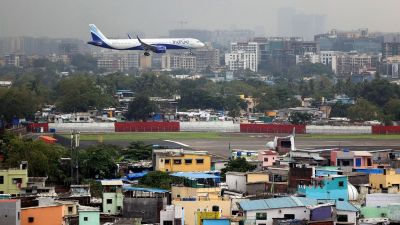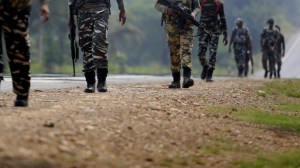Look Left, and then Left again
In Finance Minister P. Chidambaram8217;s 8220;innovative approach8221; to implementing the UPA8217;s Common Minimum Programme lies the L...

In Finance Minister P. Chidambaram8217;s 8220;innovative approach8221; to implementing the UPA8217;s Common Minimum Programme lies the Left8217;s salvation. MPs belonging to the Communist Party of India Marxist and its Left allies are predictably protesting over the announcements on disinvestment-privatisation and raising the level of foreign participation in the insurance sector, but the budget overall has brought political relief.
As underwriters to the Congress-led UPA, the Left parties had committed themselves to plugging any gaps that showed up as the government got down to business, the first such exercise being the budget for 2004-2005. Redolent with the almost overpowering odours of farms and barnyards, the budget lays to rest anxieties over the content of the New Deal for rural India and the interpretation of the mandate for change. For the CPIM, it was important that it should not be politically embarrassed by the provisions of the budget. However much it strives to maintain its distance from the government, by drawing a lakshman rekha around itself, the Left has evolved into a self-appointed conscience-keeper of the coalition. The CPIM8217;s image, irrespective of contrary perceptions within West Bengal and critics who are convinced that it has been wrong-headed on issues like labour and liberalisation, has endured as that of a party of the 8220;toiling masses8221;.
Chidambaram has done much more than act with political circumspection. He8217;s been adroit in ensuring that the CPIM was not only handsomely acknowledged for its performance in West Bengal, he implied that the party and the state were forward looking agents and so on the side of the reformers. Through his reference to his 8220;distinguished friend Dr Asim Dasgupta8221; for his role in pushing through the switchover to Value Added Tax and West Bengal8217;s initiative in removing 8220;a major impediment to credit for rural housing8221; by passing a law that simplifies 8220;the creation of security8221;, he implied there was an alternative model that could be used to make the changes work.
The dread of the Left8217;s imprint on the budget has been, largely, allayed, which is what the the CPIM and its Left partners had wanted, given the stakes of running a government in West Bengal, where the mantra has been growth-stability-equity, all of it made easier after economic reforms and liberalisation. The ideological shift of the Left towards a practical approach to policy because of the problems of governance has never been as visible as now. Ideologically the Left Front does have reservations about foreign investment, globalisation and liberalisation, but in practice, at the level of the state government, it has used the opportunities to rejuvenate the local West Bengal economy. What ought to have been an unacceptable contradiction has become a dialectically appropriate response as the CPIM pushes for changes in agriculture, like direct marketing, contract farming, agri-processing and producing for the global market, because these are the means available to create prosperity and jobs in rural areas. Ten years ago, West Bengal8217;s Left Front was hesitant about promoting floriculture and horticulture. Now, it has pinned its hopes of flowers, fruits and vegetables to boost its rural economy. Twenty-five years ago, the CPIM agonised over introducing winter paddy because it was capital intensive and would increase disparities in rural incomes.
The budget effectively allows the Left Front to continue using the contradictions to entrench itself more firmly in its strongholds and occupy the high moral ground at the national level. Economic reforms, as West Bengal Chief Minister Buddhadeb Bhattacharya acknowledges, have helped the state by opening up, for instance, infrastructure as an area of private and foreign investment and converting multinationals into partners in development. While Left trade unions and leaders can noisily object to higher foreign investment in sectors such as insurance and civil aviation, thereby keeping alive the orthodoxies by which the Left has lived for so long, budgets, like the one Chidambaram presented, are welcomed by the men on the ground 8212; namely West Bengal party boss Anil Biswas and Dasgupta 8212; because the next stage of economic reform propelled changes required in West Bengal will be politically easier to sell. Disinvestment and privatisation are politically anathema to the CPIM at the level of ideology. On the ground, in West Bengal, this is precisely the direction in which the state government has already acted and has plans for more sell-offs and shutdowns. After years and several failed attempts to sell off the now almost forgotten landmark Great Eastern Hotel, the state government is trying again, just as it hopes to attract foreign investors to put in money to create small airports connecting different parts of the state.
Between principled opposition and practical politics, there is a gap and the CPIM has managed so far to navigate successfully through it.
- 01
- 02
- 03
- 04
- 05































